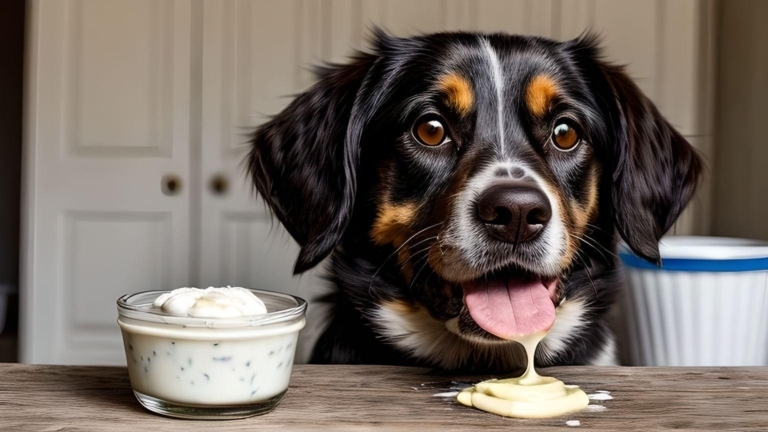As pet owners, we constantly strive to provide our canine companions with the best possible care and nutrition. Our pets are not just animals; they are cherished members of our families. Consequently, we are often inclined to share some of our own favourite foods with them, including curd, or yogurt. While curd boasts several health benefits for humans, it’s essential to explore whether it is equally suitable for our furry friends. In this comprehensive article, we will delve into the potential advantages and risks of incorporating curd into a dog’s diet, aiming to provide you with a detailed understanding of this topic.
Is Curd Good For Dogs?
Yes, plain and unflavored curd (yogurt) can be good for many dogs in moderation. It provides probiotics, calcium, and protein. However, some dogs are lactose intolerant, so it’s important to monitor their tolerance and consult a vet if unsure. Always offer curd as an occasional treat, not a primary food source.
It can provide some nutritional benefits for your furry friend. Here are a few things to consider:
Probiotics: Curd contains beneficial probiotics that can help promote a healthy gut flora in dogs, just as it does in humans. This can aid in digestion and support a strong immune system.
Calcium: Curd is a source of calcium, which is essential for maintaining healthy bones and teeth in dogs.
Protein: It also provides a moderate amount of protein, which is important for muscle maintenance and overall health.
Benefits of Curd for Dogs:
Probiotics: Curd is a rich source of probiotics, which are beneficial bacteria that support a healthy digestive system. These probiotics can help regulate your dog’s gut flora, aiding in digestion and nutrient absorption.
Calcium: Curd contains calcium, an essential mineral for dogs. Calcium is vital for maintaining strong bones and teeth, especially in growing puppies and senior dogs.
Protein: Yogurt provides a moderate amount of protein, which is necessary for muscle maintenance, tissue repair, and overall canine health.
Considerations When Feeding Curd to Dogs:
Lactose Intolerance: One of the primary concerns when feeding curd to dogs is lactose intolerance. Many dogs, like some humans, have difficulty digesting lactose, a sugar found in milk and dairy products. Lactose intolerance can lead to digestive issues such as diarrhea, gas, and abdominal discomfort. It’s essential to monitor your dog for any signs of lactose intolerance, especially if they haven’t consumed dairy before.
Plain, Unflavored Curd: When offering curd to your dog, always choose plain, unflavored yogurt without any additives. Flavored yogurts often contain added sugars and artificial sweeteners, which are not suitable for dogs.
Moderation: As with any treat or addition to your dog’s diet, moderation is key. A small amount of plain yogurt as an occasional treat should be sufficient. Overfeeding curd can lead to excessive calorie intake, which might contribute to weight gain.
Consult Your Veterinarian: If you’re uncertain about whether curd is suitable for your specific dog or if your dog has any dietary restrictions or health concerns, it’s crucial to consult your veterinarian. They can provide personalized advice based on your dog’s unique needs.
How to Introduce Curd to Your Dog:
Start with a small amount, such as a teaspoon or two, to see how your dog reacts.
Observe your dog for any signs of digestive upset, like diarrhea or gas, after consuming curd. If they tolerate it well, you can gradually increase the amount if desired.
Remember that curd should be offered as an occasional treat, not a primary food source. It should complement your dog’s regular, balanced diet.
Is Curd Good For Dogs? | Nutritional Value, 5 Health Risks, Types


















